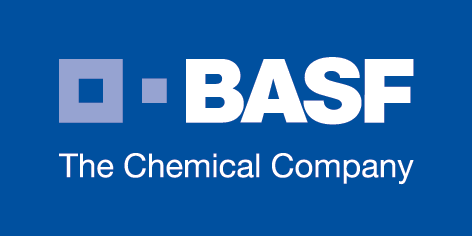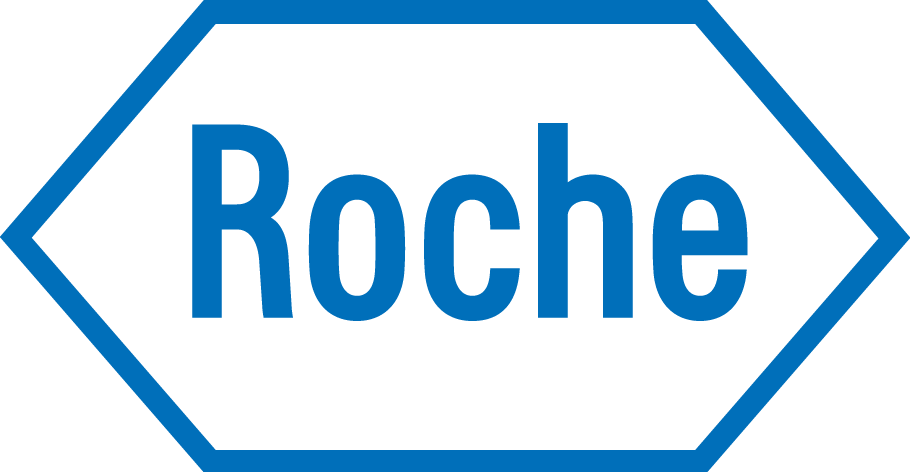Team:ETH Zurich/Notebook
From 2012.igem.org
(Difference between revisions)
| Line 108: | Line 108: | ||
* Mutagenesis of R146A in tetR-DBD-UVR8 construct. | * Mutagenesis of R146A in tetR-DBD-UVR8 construct. | ||
* Cloning of RBS-ho1 with RBS-pcyA (BBa_K909000) | * Cloning of RBS-ho1 with RBS-pcyA (BBa_K909000) | ||
| - | * Site-directed-mutagenesis of cph8 to remove illegal PstI-site | + | * Site-directed-mutagenesis of cph8 to remove illegal PstI-site (K909002) |
===Week 15 (17.9-23.9)=== | ===Week 15 (17.9-23.9)=== | ||
| Line 116: | Line 116: | ||
* Testing of UVR8 system repression dependency on bacterial strain (Top10 and JM101) | * Testing of UVR8 system repression dependency on bacterial strain (Top10 and JM101) | ||
* Cloning of his-tagged versions of tetR-DBD-UVR8 and its R146A mutants. | * Cloning of his-tagged versions of tetR-DBD-UVR8 and its R146A mutants. | ||
| - | + | * Cloning of const. Promoter (BBa_J23108) to BBa_K909000 (BBA_K909001) | |
| + | * Cloning of terminator (B0017) to RBS-LacZ (BBa_I732017) (BBa_K909006) | ||
| + | * Cloning of RBS (B0034) to cph8 (K909003) | ||
{{:Team:ETH_Zurich/Templates/Footer}} | {{:Team:ETH_Zurich/Templates/Footer}} | ||
Revision as of 09:52, 26 September 2012
Notebook
Week 1 (11.6-17.6)
- First meeting
- Brainstorming
Week 2 (18.6-24.6)
Brainstorming
Possible candidate projects:
- Bacteria sensing a small molecule (Vanillin) and navigates a robot towards the source / Chemotaxis
- Game Theory: Bacteria playing the Prisoners Dilemma Game
- Sunburn warning system
- Early-warning-system for water lack in plants using Abscisic Acid (ABA) detection
- frequency dependent music tuning device / Mechanical receptor sensing
- tightly regulated expression system without leakiness
- C-PS (Cell Positioning System): GPS for a cell
- Temperature sensing yeast used in beer brewing
Week 3 (25.6-1.7)
- Literature research on our different project ideas.
Week 4 (2.7-8.7)
- Literature research on our different project ideas and final decision.
Week 5 (9.7-15.7)
- Ordering of additional parts from the iGEM headquater
- Ordering primers for YcgF & YcgE
- Ordered cDNA of UVR8 from prof. dr. Ronald Urm (Geneva)
- Brainstorming on tetR-DBD and UVR8 fusion strategies:
- Native UVR8 fusion with tetR-DBD (tetR-DBD-UVR8)
- Truncated version of UVR8 fusion with tetR-DBD (tetR-DBD-dUVR8)
- tetR-DBD-UVR8 fusion extended with [GGS]2 linker (tetR-DBD-GGS-UVR8)
Week 6 (16.7-22.7)
- Cloning of YcgZ promoter (K238013) and GFP (E0840) into pSB1AK3
- Cloning of YcgE & YcgF from bacterial genome (PCR)
- Preparation of competent K.O. strains (Δrpos, ΔYcgE, ΔYcgF, parent)
- Andreas Bosshart provided a pSEVA183 derived plasmid (pSEVA183-lacI), containing ampicillin resistance, constitutively expressed LacI from native promoter and Ptac promoter for cloned gene expression.
- Ordered primers for full length tetR and truncated version (tetR-DBD) protein cloning
- TetR controllable GFP expression system (BBa_I13522) was cloned from pSB1A2 to pSB1C3, tested size in agarose gel and sequenced.
Week 7 (23.7-29.7)
- Cloning of YcgE & YcgF into psB1C3
- Transformation of K.O. strains and inoculation for FACS
- Cloning of tetR and tetR-DBD into pSEVA183-lacI and tested weather tetR-DBD is unable to repress GFP production from pSB1C3 plasmid.
- Ordered primers for UVR8 fusions.
Week 8 (30.7-5.8)
- Cloning of LacZ downstream to the YcgZ promoter into pSB1C3, tranformation, colony PCR, sequencing
- Single cell analysis of K23013-E0840 using FACS
- Transformation of K.O. strains with construct K23013-LacZ and inoculation for Miller Assay
- Recloning of GFP reporter system (BBa_I13522) into pSB4K5 plasmid.
- Cloning of UVR8 versions behind tetR-DBD and transforming fusion constructs (in pSEVA183-lacI) with GFP reporter system (in pSB4K5), later called as UVR8 system.
Week 9 (6.8-12.8)
- Cloning of RBS B0034 upstream to YcgE & YcgF, transformation, colony PCR, sequencing
- Designing YcgZ promoter with multiple operator sites
- Test construct K23013-LacZ with the Miller assay
Week 10 (13.8-19.8)
- Cloning pabB (S04039) with pabA (K137055) into vector pSB1C3; LovTAP reporter (K322999) with a constitutive promoter (J23108) into vector pSB1C3
- Fusing designed YcgZ promoters to LacZ
- First test of UVR8 constructs in platereader
- Cloning ho1 (I15008) and pcyA (I15009) with RBS (B0034) into pSB1A3
Week 11 (20.8-26.8)
- Cloning LovTAP reporter (K322999) with a constitutive promoter (J23108) into vector pSB1C3
- Testing of LovTap construct (Tecan plate reader)
- Cloning Terminator (B0017) to RBS-ho1 (B0034-I15008) and RBS-pcyA (B0034-I15009)
- New test of UVR8 constructs in platereader
Week 12 (27.8-2.9)
- Testing of LovTap in different light conditions (6h incubation). Measuring RFP output with FACS.
- Testing 312 nm UV-B response of UVR8 system on agar plates with different UV-B light regimes, distances from UV-B source and exposure times.
- Isolation of cph8-sequence from pJT122 using PCR and cloning into pSB4A5
Week 13 (3.9-9.9)
- Testing of LovTap in different light conditions (12h incubation). Measuring RFP output with FACS.
- Testing UVR8 constructs repression dependency on induction (IPTG concentration) and UVR8 cell toxicity.
Week 14 (10.9-16.9)
- UVR8 System : Testing of different exposure invervals and UV intensities.
- Changing the read-out of the UVR8 system from GFP to Galactosidase
- Cloning of new read-out system for LovTap from RFP to Galactosidase due to observed bleaching upon light exposure.
- Cloning of PabA and PabB in one verctor
- Exact planning of the decoder. Ordering of Primers and inoculation of necessary parts.
- Designing primers for Gibson ligation
- Cloning pabA into vector containint pabB
- Testing UVR8 systems in 25 and 50 mL LB medium in shaking flasks and characterization of UVR8 fusions in an SDS-acrylamide gels.
- TetR-DBD-UVR8 and TetR-DBD-GGS-UVR8 were
- Ordered primers for:
- tetR-DBD-dUVR8 his tagged version
- UVR8 mutagenesis
- R146A and R286A mutations (single mutant has a destabilized dimer; double mutant cannot form dimmers)
- Illegal PstI sites in UVR8 sequence.
- Mutagenesis of R146A in tetR-DBD-UVR8 construct.
- Cloning of RBS-ho1 with RBS-pcyA (BBa_K909000)
- Site-directed-mutagenesis of cph8 to remove illegal PstI-site (K909002)
Week 15 (17.9-23.9)
- Cloning of new read-out system for LovTap with LacZ
- Cloning protein coding region of LacZ and TetR with a constitutive promoter (Decoder)
- Cloning all parts in the pSB1C3 backbone
- Testing of UVR8 system repression dependency on bacterial strain (Top10 and JM101)
- Cloning of his-tagged versions of tetR-DBD-UVR8 and its R146A mutants.
- Cloning of const. Promoter (BBa_J23108) to BBa_K909000 (BBA_K909001)
- Cloning of terminator (B0017) to RBS-LacZ (BBa_I732017) (BBa_K909006)
- Cloning of RBS (B0034) to cph8 (K909003)
References
- Brown, B. a, Headland, L. R., & Jenkins, G. I. (2009). UV-B action spectrum for UVR8-mediated HY5 transcript accumulation in Arabidopsis. Photochemistry and photobiology, 85(5), 1147–55.
- Christie, J. M., Salomon, M., Nozue, K., Wada, M., & Briggs, W. R. (1999): LOV (light, oxygen, or voltage) domains of the blue-light photoreceptor phototropin (nph1): binding sites for the chromophore flavin mononucleotide. Proceedings of the National Academy of Sciences of the United States of America, 96(15), 8779–83.
- Christie, J. M., Arvai, A. S., Baxter, K. J., Heilmann, M., Pratt, A. J., O’Hara, A., Kelly, S. M., et al. (2012). Plant UVR8 photoreceptor senses UV-B by tryptophan-mediated disruption of cross-dimer salt bridges. Science (New York, N.Y.), 335(6075), 1492–6.
- Cloix, C., & Jenkins, G. I. (2008). Interaction of the Arabidopsis UV-B-specific signaling component UVR8 with chromatin. Molecular plant, 1(1), 118–28.
- Cox, R. S., Surette, M. G., & Elowitz, M. B. (2007). Programming gene expression with combinatorial promoters. Molecular systems biology, 3(145), 145. doi:10.1038/msb4100187
- Drepper, T., Eggert, T., Circolone, F., Heck, A., Krauss, U., Guterl, J.-K., Wendorff, M., et al. (2007). Reporter proteins for in vivo fluorescence without oxygen. Nature biotechnology, 25(4), 443–5
- Drepper, T., Krauss, U., & Berstenhorst, S. M. zu. (2011). Lights on and action! Controlling microbial gene expression by light. Applied microbiology, 23–40.
- EuropeanCommission (2006). SCIENTIFIC COMMITTEE ON CONSUMER PRODUCTS SCCP Opinion on Biological effects of ultraviolet radiation relevant to health with particular reference to sunbeds for cosmetic purposes.
- Elvidge, C. D., Keith, D. M., Tuttle, B. T., & Baugh, K. E. (2010). Spectral identification of lighting type and character. Sensors (Basel, Switzerland), 10(4), 3961–88.
- GarciaOjalvo, J., Elowitz, M. B., & Strogatz, S. H. (2004). Modeling a synthetic multicellular clock: repressilators coupled by quorum sensing. Proceedings of the National Academy of Sciences of the United States of America, 101(30), 10955–60.
- Gao Q, Garcia-Pichel F. (2011). Microbial ultraviolet sunscreens. Nat Rev Microbiol. 9(11):791-802.
- Goosen N, Moolenaar GF. (2008) Repair of UV damage in bacteria. DNA Repair (Amst).7(3):353-79.
- Heijde, M., & Ulm, R. (2012). UV-B photoreceptor-mediated signalling in plants. Trends in plant science, 17(4), 230–7.
- Hirose, Y., Narikawa, R., Katayama, M., & Ikeuchi, M. (2010). Cyanobacteriochrome CcaS regulates phycoerythrin accumulation in Nostoc punctiforme, a group II chromatic adapter. Proceedings of the National Academy of Sciences of the United States of America, 107(19), 8854–9.
- Hirose, Y., Shimada, T., Narikawa, R., Katayama, M., & Ikeuchi, M. (2008). Cyanobacteriochrome CcaS is the green light receptor that induces the expression of phycobilisome linker protein. Proceedings of the National Academy of Sciences of the United States of America, 105(28), 9528–33.
- Kast, Asif-Ullah & Hilvert (1996) Tetrahedron Lett. 37, 2691 - 2694., Kast, Asif-Ullah, Jiang & Hilvert (1996) Proc. Natl. Acad. Sci. USA 93, 5043 - 5048
- Kiefer, J., Ebel, N., Schlücker, E., & Leipertz, A. (2010). Characterization of Escherichia coli suspensions using UV/Vis/NIR absorption spectroscopy. Analytical Methods, 9660. doi:10.1039/b9ay00185a
- Kinkhabwala, A., & Guet, C. C. (2008). Uncovering cis regulatory codes using synthetic promoter shuffling. PloS one, 3(4), e2030.
- Krebs in Deutschland 2005/2006. Häufigkeiten und Trends. 7. Auflage, 2010, Robert Koch-Institut (Hrsg) und die Gesellschaft der epidemiologischen Krebsregister in Deutschland e. V. (Hrsg). Berlin.
- Lamparter, T., Michael, N., Mittmann, F., & Esteban, B. (2002). Phytochrome from Agrobacterium tumefaciens has unusual spectral properties and reveals an N-terminal chromophore attachment site. Proceedings of the National Academy of Sciences of the United States of America, 99(18), 11628–33.
- Levskaya, A. et al (2005). Engineering Escherichia coli to see light. Nature, 438(7067), 442.
- Mancinelli, A. (1986). Comparison of spectral properties of phytochromes from different preparations. Plant physiology, 82(4), 956–61.
- Nakasone, Y., Ono, T., Ishii, A., Masuda, S., & Terazima, M. (2007). Transient dimerization and conformational change of a BLUF protein: YcgF. Journal of the American Chemical Society, 129(22), 7028–35.
- Orth, P., & Schnappinger, D. (2000). Structural basis of gene regulation by the tetracycline inducible Tet repressor-operator system. Nature structural biology, 215–219.
- Parkin, D.M., et al., Global cancer statistics, 2002. CA: a cancer journal for clinicians, 2005. 55(2): p. 74-108.
- Rajagopal, S., Key, J. M., Purcell, E. B., Boerema, D. J., & Moffat, K. (2004). Purification and initial characterization of a putative blue light-regulated phosphodiesterase from Escherichia coli. Photochemistry and photobiology, 80(3), 542–7.
- Rizzini, L., Favory, J.-J., Cloix, C., Faggionato, D., O’Hara, A., Kaiserli, E., Baumeister, R., et al. (2011). Perception of UV-B by the Arabidopsis UVR8 protein. Science (New York, N.Y.), 332(6025), 103–6.
- Roux, B., & Walsh, C. T. (1992). p-aminobenzoate synthesis in Escherichia coli: kinetic and mechanistic characterization of the amidotransferase PabA. Biochemistry, 31(30), 6904–10.
- Strickland, D. (2008). Light-activated DNA binding in a designed allosteric protein. Proceedings of the National Academy of Sciences of the United States of America, 105(31), 10709–10714.
- Sinha RP, Häder DP. UV-induced DNA damage and repair: a review. Photochem Photobiol Sci. (2002). 1(4):225-36
- Sambandan DR, Ratner D. (2011). Sunscreens: an overview and update. J Am Acad Dermatol. 2011 Apr;64(4):748-58.
- Tabor, J. J., Levskaya, A., & Voigt, C. A. (2011). Multichromatic Control of Gene Expression in Escherichia coli. Journal of Molecular Biology, 405(2), 315–324.
- Thibodeaux, G., & Cowmeadow, R. (2009). A tetracycline repressor-based mammalian two-hybrid system to detect protein–protein interactions in vivo. Analytical biochemistry, 386(1), 129–131.
- Tschowri, N., & Busse, S. (2009). The BLUF-EAL protein YcgF acts as a direct anti-repressor in a blue-light response of Escherichia coli. Genes & development, 522–534.
- Tschowri, N., Lindenberg, S., & Hengge, R. (2012). Molecular function and potential evolution of the biofilm-modulating blue light-signalling pathway of Escherichia coli. Molecular microbiology.
- Tyagi, A. (2009). Photodynamics of a flavin based blue-light regulated phosphodiesterase protein and its photoreceptor BLUF domain.
- Vainio, H. & Bianchini, F. (2001). IARC Handbooks of Cancer Prevention: Volume 5: Sunscreens. Oxford University Press, USA
- Quinlivan, Eoin P & Roje, Sanja & Basset, Gilles & Shachar-Hill, Yair & Gregory, Jesse F & Hanson, Andrew D. (2003). The folate precursor p-aminobenzoate is reversibly converted to its glucose ester in the plant cytosol. The Journal of biological chemistry, 278.
- van Thor, J. J., Borucki, B., Crielaard, W., Otto, H., Lamparter, T., Hughes, J., Hellingwerf, K. J., et al. (2001). Light-induced proton release and proton uptake reactions in the cyanobacterial phytochrome Cph1. Biochemistry, 40(38), 11460–71.
- Wegkamp A, van Oorschot W, de Vos WM, Smid EJ. (2007 )Characterization of the role of para-aminobenzoic acid biosynthesis in folate production by Lactococcus lactis. Appl Environ Microbiol. Apr;73(8):2673-81.
 "
"





